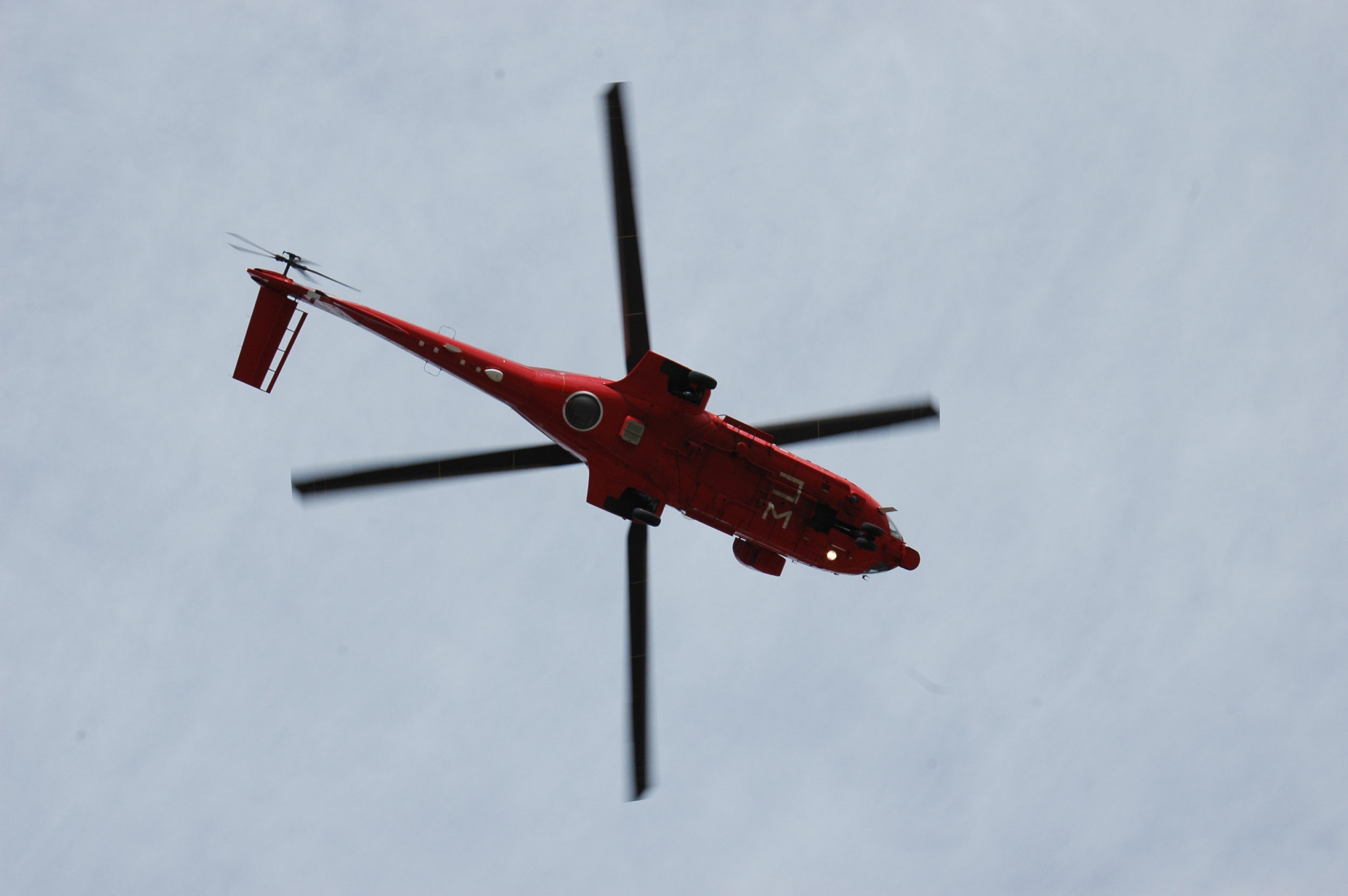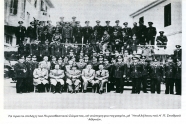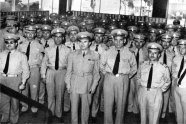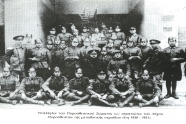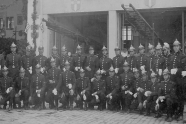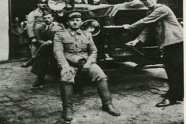|
According to article 69 of n.4249 / 2014 "Upgrading the Fire Academy-National Civil Protection School (E.S.PO.P)" a new modern operating framework has been formed for the Fire Academy and its schools with an emphasis on providing a high level of academic and fire studies. Particular attention is given to the expansion and upgrading of educational programs provided to public as well as to developing a sense of self-protection of society on fire issues and civil protection. The Fire Academy now includes the following schools:Officers' School Sergeants' School Firemen School School of Further Education & Professional Training National Civil Protection School (E.S.PO.P.) Album: Educational History HISTORY OF FIRE TRAININGBy the Decree of 20 June 1931 on the regulation of the conduct of the Fire Service in the interim state, {180, Issue A, P. E. K. / July 3, 1931}, compulsory education for firefighters has been introduced. In the first application of the Decree, all courses where compulsory and were attended by all fire employees, permanent and probationary employees with the degree of Assistant Commissioner B class and above. Inspector General Alcibiades Kokkinakis had the general command assisted by an Advisory Council, which was responsible for developing the curriculum and final inspection of the examinations. The training included: 1. theoretical courses: a) Internal Service Regulations and discipline of F.C b) Methods of extinguishing various types of fires c) Description of the various tools and accessories and their use d) Description of fire trucks and driving practice e) Basic architectural elements. f) Physics g) Chemistry h) Theoretical development of the car 2. practical lessons: a) Swedish Gymnastics b) Special Fire Gymnastics c) Exercises with firefighting equipment and accessories d) Car Driving ESTABLISHMENT OF FIRE SCHOOLPromotions in Officers were after Meritorious Service of Sergeant without exams for promotion. Later, with the NW of 5/17 December 1947 (Government Gazette Issue 285 A), established that all promotions would be taken place after written exams. The subjects in which candidates were examined: Greek (essay) Organization and Regulation of the Fire Brigade Fire Science Knowledge Architecture, Physics and Chemistry. The founding of Emergency Law, followed 646/1969 NW " Fire School Regulation", which settled among many others, admission and discharge tests as well as the subjects taught in school. Indicative courses that Article 73 of Royal Decree introduced for officers school are the following: Fire Legislation (Laws- Regulations) Fire science Physics chemistry Building-Plan and regulations Greek literature criminal law criminal proceedings scientific Investigation Drills’ Regulations Automotive Engineering (theory-driving, maintenance and repair) Swedish Gymnastics mathematics Internal Services Holding of NB of (mail-service books-Management) English Aeronautical Data and Shipbuilding Health-First Aid, and no degree: Ethics and Social behaviour, Elements of Constitutional Law, Administrative Law Elements, Elements of Civil Law, Civil Procedure Details, Civil Defence, Accounting, Sports, managed speeches and various other courses in lecture format, at its discretion the Minister of Public Order. The Fire School, having worked for ten years in the premises of the street Sarris, within a limited space, acquired facilities in Kato Kifissia. Chief Commander of the Fire School at the beginning of the operation, was the Brigadier Basil KATSOULI made sure from the start, to make it equal School of Faculties of other bodies. Since 1972 works intermittently Annex School Firemen and Thessaloniki (Agia Triada, Sindo), and since 1999 works and Annex School Firemen in Vilia Attica. In 1993 the P.D.329 / 93 renamed the Fire School on Fire Academy and the Department of officers with four years education is equivalent to those of university. |
|||
